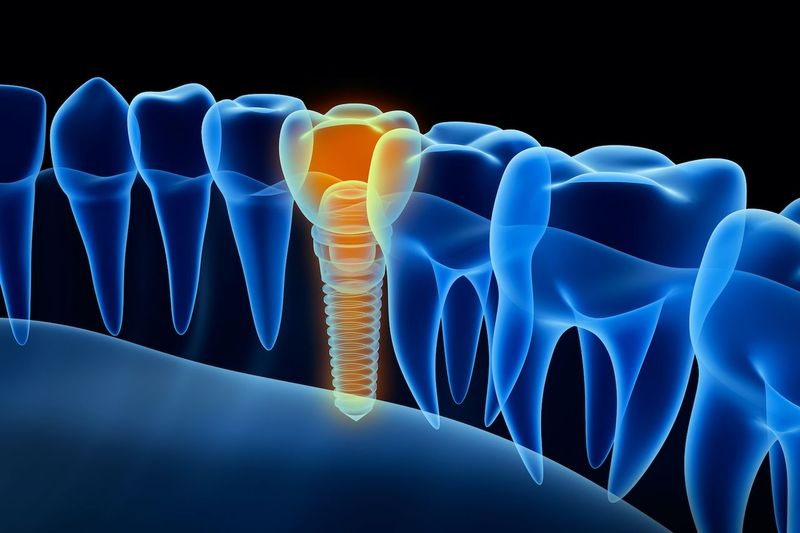Dental implants are one of the most comprehensive and enduring ways to replace missing teeth. These fixtures feature a surgically inserted titanium post in the jaw that fuses with the jawbone to support prosthetic teeth above the gumline. Dentists consider implants to be permanent dental solutions because, once in place, they cannot be removed and will remain in a patient’s smile for twenty years or longer.
Not all dental patients will be eligible for implants, however. A dentist will need to make sure the patient has enough healthy jawbone and gum tissue to allow the fusion process to happen successfully. Otherwise, the patient cannot sustain the implant.
Implant dentistry has a 95% success rate, but there is a minute chance that an implant may fail. This means that the fusion process did not happen properly. The implant will not fit in the patient’s smile, and it can severely impact their oral health.
If you know more about this dental concern, you can help reduce the risk of it happening. Read on to learn details about how to identify dental implant failure and avoid it.

Signs of a Failing Dental Implant
A failing dental implant implies the unsuccessful fusion of the implanted device with the jawbone. So if your implant seems loose, wobbly, or otherwise ill-fitting, you should let your dentist know. You will need urgent attention from your dentist to remove a failing implant before your oral health deteriorates.
Many patients may also feel significant pain if an implant fails. Some soreness after an anchor placement surgery is normal as you heal from the procedure. But you should be able to manage discomfort with tips from your dentist.
Extreme oral pain is abnormal and warrants an evaluation from your dentist. You should also tell your dentist if you notice signs of infection at the surgical site, including swelling or bleeding.
How to Maximize Success from Your Dental Implant
The risk of dental implant failure is low, but you can reduce this danger even more when you follow your dentist’s aftercare guidelines after you receive an implant. This means being gentle around the healing surgical site while still maintaining good oral hygiene.
Brushing and flossing your teeth, even after implant treatment, is crucial to maximize the success of your implant. Oral hygiene keeps bacteria at bay to prevent tooth decay, gum disease, and other dental problems. If you experience deterioration in your gums or surrounding teeth, the fit of your implant could suffer too.
Stick to a proper oral hygiene routine before, during, and after dental implant treatment in order to keep your smile healthy and avoid complications with your implant. Skipping even one day of this regimen can allow harmful plaque to eat away at your teeth and gums and cause irreversible damage.
Visit your dentist for routine dental cleanings too to further enhance your oral cleanliness. Learn more about caring for your new implant by contacting your dentist today.
